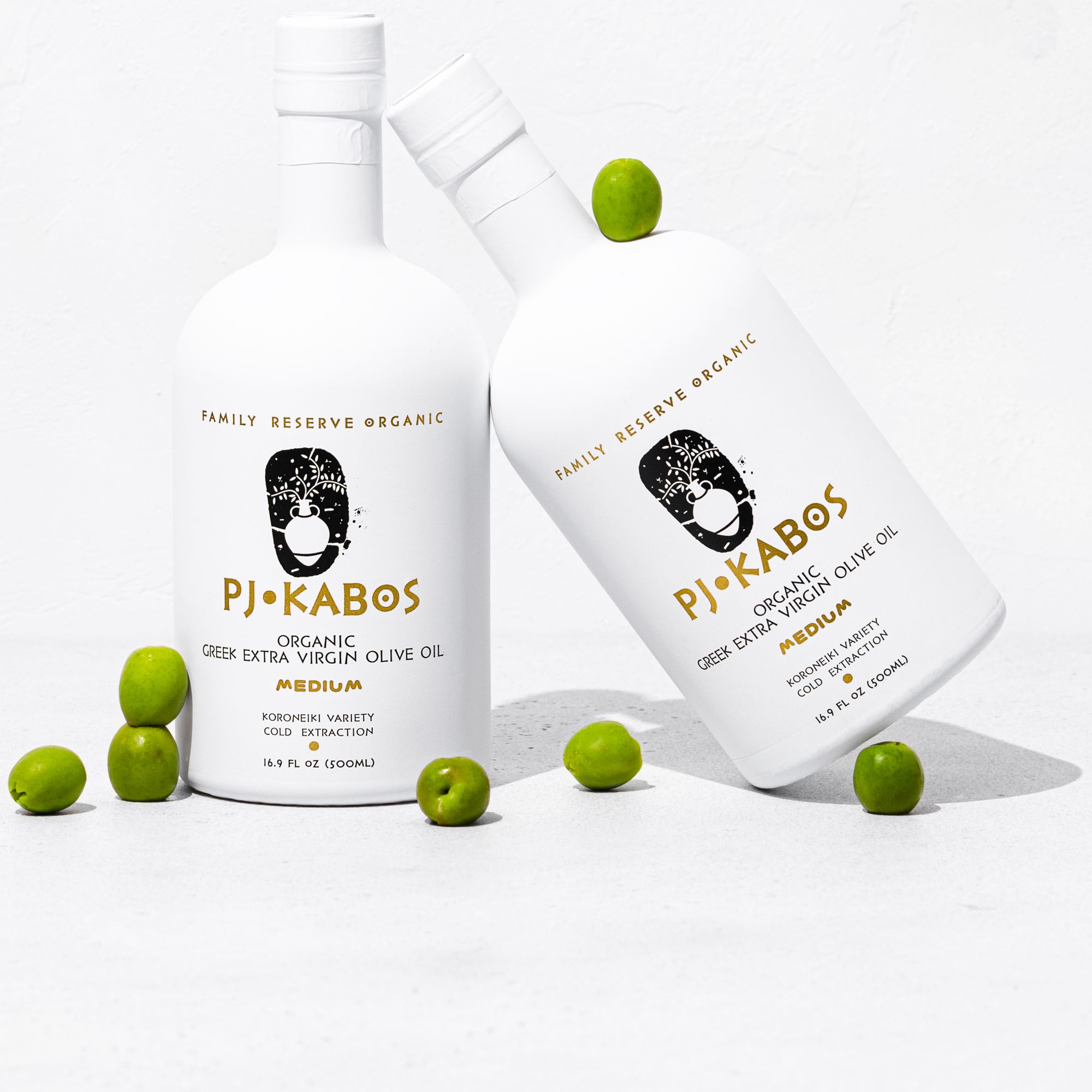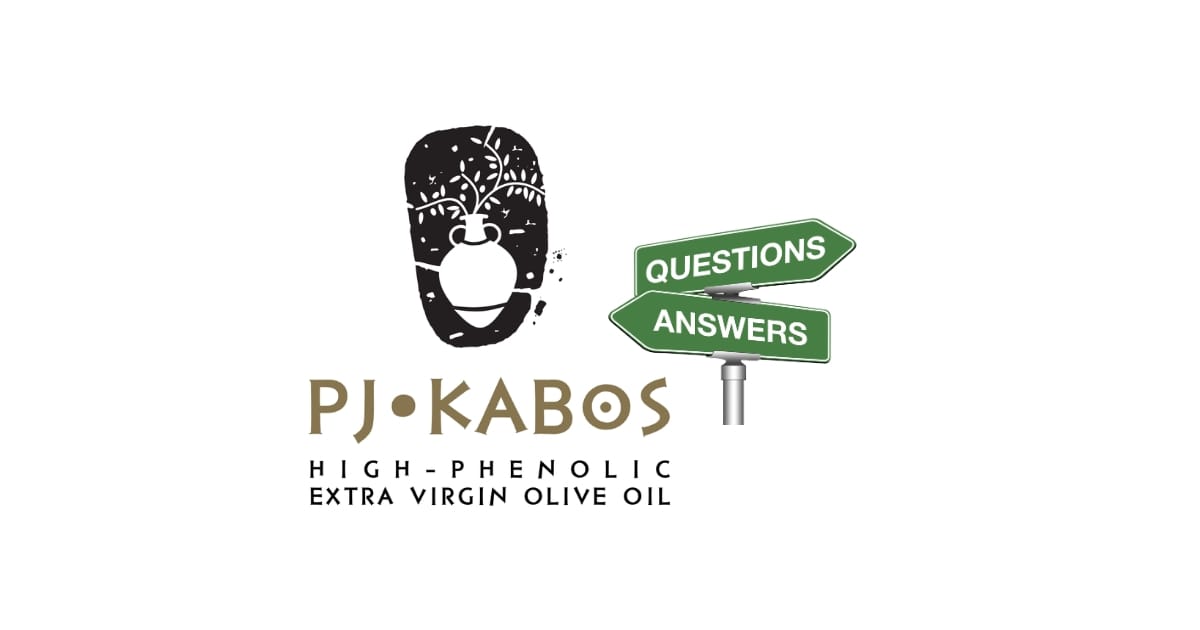Let’s dispel a nutrition myth once and for all: Fat does not make you fat! Learn how olive oil helps achieve and maintain a healthy weight—deliciously.
Despite the villainization of fat in the ‘80s and ‘90s and the boom in fat-free products (remember those terrible SnackWell’s cookies?), there is actually no good evidence that fat makes you gain more weight than eating an equivalent number of calories from carbohydrates or protein. You need all three of these essential macronutrients in order to function optimally. In fact, fat plays key roles in hormone production, cellular growth, protection of organs, helping you feel full, and the absorption of fat-soluble vitamins (A, D, E, and K) and antioxidants—so without it, you’d really be in trouble.
Of course, some sources of fat are better for you than others. Not only is olive oil one of the best fats you can eat from an all-around health standpoint (thanks to its high levels of polyphenols and monounsaturated fatty acids, research suggests it may help curb inflammation, boost heart health, and more), but it can also support healthy weight maintenance and weight loss.
It’s not as simple as “eat more olive oil and drop pounds,” but when olive oil is part of an overall balanced diet, there’s reason to believe it may help you shed excess weight by boosting satiety, balancing blood sugar, reducing inflammation, and more.
What does the research say on olive oil and weight loss?
Research indicates that olive oil does not cause weight gain in the context of a healthy diet.
A study from 2006 tracking the eating habits of more than 7,000 college students over the course of 28 months found that higher consumption of olive oil was not associated with higher weight gain or a significantly higher risk of developing overweight or obesity in the context of the Mediterranean food pattern. Some other healthy aspects of a Mediterranean diet that may aid in weight loss or maintenance include a high intake of vegetables and fruits, which deliver a good dose of dietary fiber. Like fat, fiber helps you stay full and supports balanced blood sugar, which may curb cravings and reduce your likelihood of overeating.
Olive oil-rich Mediterranean diets are better for weight loss than low-fat diets
Further bolstering the findings mentioned above (and proving that low-fat is not the answer): In a two-year study, people following a Mediterranean-style diet lost almost twice as much weight as people following a low-fat diet. Those on the Mediterranean diet also ended up consuming more fiber and had the highest ratio of healthy monounsaturated fat (the kind found in olive oil) to saturated fat. With its emphasis on fiber-rich plant foods, lean proteins, and healthy fats—all of which are incredibly filling and packed with nutrition—it makes total sense!
Adding EVOO to your breakfast may boost weight loss
In a 2017 study, women with excess body fat who supplemented their breakfast with approximately 1.5 tablespoons of extra virgin olive oil experienced significantly greater weight loss and reduction in blood pressure than women consuming an equal amount of soybean oil (often, a main component of vegetable oil), prompting researchers to recommend that extra virgin olive oil be included in programs for obesity treatment. (Pro tip: Try drizzling olive oil and a bit of honey onto your oatmeal along with loads of fresh berries, a dollop of Greek yogurt, and some nuts. It’s amazing!).
While it’s not totally clear why olive oil is more beneficial for weight loss than soybean oil, it may have to do with soybean oil’s fatty acid composition. Compared to olive oil, soybean oil contains a much higher ratio of omega-6 polyunsaturated fats. While these fats aren’t inherently “bad,” nutrition experts say that consuming more omega-6s than omega-3s may have a pro-inflammatory effect, since omega-6 fats are more prone to oxidation. Inflammation, in turn, is at the root of nearly every chronic health condition, and many experts believe chronic inflammation makes it harder for people to lose weight.
Olive oil (especially EVOO), on the other hand, has been shown to help reduce inflammation, thanks to its high composition of monounsaturated fats and polyphenols.
Replacing saturated fat with monounsaturated fats—found in olive oil—may reduce weight and fat mass
As mentioned, the main type of fat in olive oil is monounsaturated fat, which has been shown to possess anti-inflammatory properties and significantly improve heart health when consumed in place of saturated fat from things like butter, fatty cuts of meat, and processed baked goods. In addition to these perks, a small study from 2003 also found that men who replaced the saturated fat in their diets with monounsaturated fats experienced a small yet significant loss of both weight and fat mass, even though the total amount of fat and calories consumed stayed the same. The really great news: Olive oil often lends a more unique, nuanced flavor to meals than sources of saturated fat—so subbing it into your diet is truly a win-win!
How to use olive oil for weight loss
Simply adding olive into your existing diet probably won’t do much for weight loss. But, consuming olive oil in the context of a healthful Mediterranean-style diet and using olive oil as a substitute for other less nutritious fat sources (vegetable oil, butter, coconut oil, shortening, etc) can help enhance overall health and may support sustainable weight loss. Here are several ways you can incorporate olive oil into your daily diet:
- Use in tuna and chicken salads instead of mayo
- Use on toast and English muffins instead of butter
- Use for sautéing veggies and meat instead of vegetable oil
- Use in cakes and cookies instead of vegetable oil or butter
- Use for frying eggs instead of butter
Product placement
PJ KABOS 'Family Reserve Organic - Medium'
High Phenolic and 2022 Gold-Award Winner.
Declared as 'One of the World's Best Olive Oils'.
Click here to shop.





